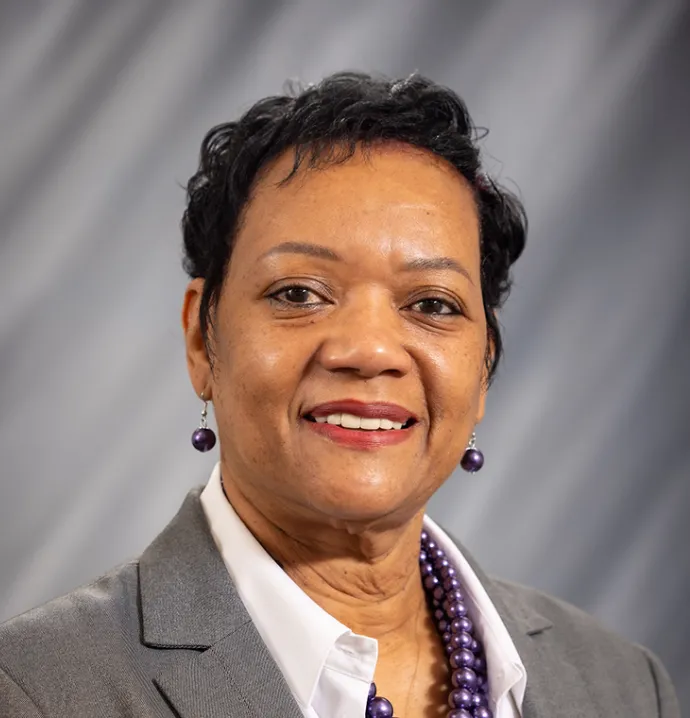As pandemic intensifies, UNI professor helps guide healthcare ethics
As pandemic intensifies, UNI professor helps guide healthcare ethics
The rapid global spread of COVID-19 has forced some health care providers to make gut-wrenching choices. In Italy, doctors had to decide which terminally-ill patients received ventilators. And in New York, there have been reports of patients unable to get lifesaving treatments.
Fortunately Cedar Valley physicians have so far been spared making those momentous life-or-death choices about who receives care. But they’ve turned to a UNI professor and bioethics expert for guidance in case that day ever comes.
UNI professor of philosophy Francis Degnin is helping create ethical guidelines for local hospitals. Degnin specializes in clinical ethics (sometimes referred to as bioethics or medical ethics), and has served on the ethics committees for Unity Point Health and Mercy One in Cedar Falls, as well as the Iowa Veterans Home in Marshalltown. He regularly teaches a bioethics class at UNI, but his impact reaches far beyond the classroom.
“I've had students that have gone on to medical school and they've said that my bioethics classes turned out to be more helpful to them in their practice than the similar ethics classes they had in medical school,” said Degnin.
The United States currently has the most confirmed cases of COVID-19 in the world (https://gisanddata.maps.arcgis.com/apps/opsdashboard/index.html#/bda7594...), but there are no national guidelines on making the life-or-death decisions that come along with treating patients during a global public health crisis. Already, hospitals are experiencing shortages of personal protective equipment and are preparing for a potential shortage of ventilators, breathing aids used during the treatment of COVID-19 patients. With infections still on the rise, ethical guidelines are all the more necessary, as rationing medical care becomes a real possibility.
“In the weeks ahead, physicians in the United States may be asked to make decisions that they have never before had to face, and for which many of them will not be prepared,” three top bioethics experts recently wrote in The New England Journal of Medicine, a prestigious medical publication.
Degnin’s expertise has been especially beneficial in the midst of the COVID-19 pandemic, which is overloading healthcare systems throughout the nation. Drawing on his education and years of experience in clinical ethics, Degnin is helping prepare local healthcare providers to make life-or-death decisions. He’s developed trainings that address specific concerns unique to pandemics like COVID-19.
Bioethicists are used to dealing with thorny questions that involve the converge of legal, medical, religious and social issues. These can range from whether parents can deny life-saving medical treatment to their children on religious grounds to the custody rights of a fertilized egg. Degnin brings that expertise to bear when he designed training sessions that address the specific concerns unique to pandemics like COVID-19.
“The main ethical question I'm always asking is, given the medical situation and the range of acceptable alternatives within our culture, what does the patient want? So there's a huge emphasis on autonomy,” said Degnin. “In a true pandemic, if we reach a point where we have too many patients who need critical resources and we just don't have the resources, that shifts from autonomy to what I'm going to call utilitarian ethic, which is the greatest good for the greatest number.”
These decisions are made even more urgent by COVID-19’s quick spread.
“Normal pneumonia starts in one lung, so if you put on a ventilator, you've got one lung mostly functioning. COVID tends to attack both lungs at the same time,” said Degnin.
So what happens if we have more people who need ventilators than we have the machines to keep them alive?
“One of the things they look at is a SOFA score. Think of it as a survivability score,” Degnin said. “If you’re on a ventilator and have a poor survivability score, meaning that the odds are that you're not going to make it, and if we have somebody else who’s more likely to survive, then we'll switch them, because otherwise they both will probably die. It’s not because they’re worth more than anyone else, it’s to help save them most lives.”
These are difficult decisions to make, but Degnin said it’s all about doing what’s best for the greatest number of patients.
“The most tragic situations I see are when somebody is in incredible pain and suffering, we cannot save them and the family will not let go. They’ll say, ‘You have to keep trying to save them,’” he said. “We often try to do too much at the end of life and what we’ve actually done is cause someone to suffer a lot more while they’re dying.”
UNI students benefit from Degnin’s work with hospitals. Degnin often discusses (de-identified) case studies from his work in hospitals in the classroom, which makes a lasting impact on students.
"Biomedical Ethics with Dr. Degnin was definitely a class I will remember. In it we looked at a lot of challenging medical ethics cases," said senior physics major Evan O'Leary. "It is one thing to talk about the theory of ethics, but to hear it from someone who is currently applying it and seeing the real life implications of every decision he makes, it really gave a sense of the weight of these decisions."
Degnin has even been treated by former students who went on to become healthcare professionals, which helps him appreciate the impact of his work.
“I’m having more and more of my former students be my healthcare providers. My last physical therapist when I had surgery was a former student of mine,” Degnin said. “I work with social workers in hospitals that I taught, there are medical residents here now that I formally taught. It’s incredibly gratifying.”




